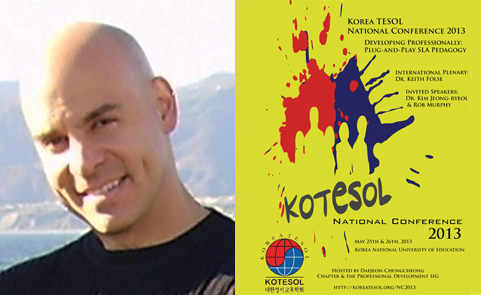
Teaching Communicatively towards the NEAT and Other Productive Speaking Tests
Mr. Nico Lorenzutti
Abstract
Although both its timeline for implementation and final format are matters of ongoing debate, without doubt the National English Ability Test (NEAT) or tests like it are fast becoming a new trend in English education in South Korea. More universities will use NEAT or comparable scores as a key criterion when selecting new students for the 2013 academic year, and as a result many public and private institutions are offering courses designed to help students master the questions for the exam. Consequently, teachers in classrooms across Korea are under increasing pressure to provide test preparation for the current format. This workshop is a practical ‘how to’ for teachers grappling with the challenges of the NEAT test, or concerned they will be doing so in the future.
Can test preparation be fun? Can you teach productive speaking test questions communicatively? Absolutely! This is a hands-on how-to presentation which provides teachers with teaching strategies for 5 NEAT speaking tasks and clear, ready-to-go classroom activities designed to prepare their students for the test. The tasks discussed will comprise:
- Describing a picture
- Telling a story
- Describing a Graph
- Describing Characteristics: WH Questions
- Giving advice
Model answers will be analyzed before a dynamic, easy to implement activity is demonstrated for practicing the language needed to complete each task. Teachers gearing up for productive speaking test preparation will walk away with 5 activity procedures adaptable for both public and private education contexts.
Bio-sketch
Nico Lorenzutti has taught and trained teachers in Japan, Canada and South Korea for over 15 years. He teaches in the Intensive Teacher Training Program at Chonnam National University where he has worked since 2008. He designed and teaches the speaking component of CNU’s two-week intensive NEAT Teacher Training Course. He holds a CELTA and is currently a candidate for an MA in Applied Linguistics at the University of Nottingham. His main research interests are the use of popular culture products in the language classroom


